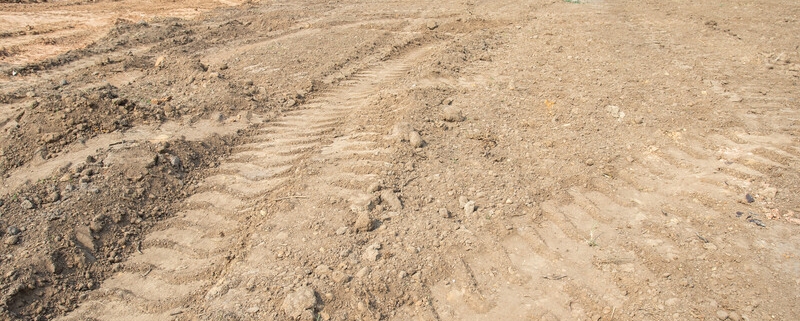A proposed bill in Florida that would dramatically restrict investment in real estate from Chinese buyers and those from other communist countries could have ripple effects on the rest of the foreign buyer market, experts say.
Florida lawmakers are advancing controversial House Bill 1355, which would ban Chinese nationals from purchasing real estate anywhere in the state. Chinese businesses and people who live in China and aren’t U.S. citizens or residents and who currently own real estate in Florida would not be able to buy additional property after July 1, if the bill becomes law as it is currently written.
They would also have to register their existing ownership of such properties with the state, which some critics have compared to Hitler’s 1938 decree requiring all Jews in Germany and Austria to register their properties.
The amount of Chinese investment in South Florida real estate has dwindled since before the pandemic. But Chinese investors still invest in commercial real estate, such as shopping centers and office buildings, and parents continue to buy condos for their children who attend colleges and universities in South Florida, brokers say.
“As it stands, the Florida bills could make it difficult for families to purchase homes for students studying in Florida,” said Ana Bozovic, founder of real estate data firm and brokerage Analytics Miami. “Is that something we really want to restrict?”
Rep. Katherine Waldron, a Democrat who co-sponsored the bill, said it would likely be changed to carve out Chinese students, the Miami Herald reported.
Waldron said, “We’re not trying to cause anybody harm who lives here.”
The bill would also ban foreign nationals from Russia, Iran, North Korea, Cuba, Venezuela and Syria from purchasing agricultural land in the state. And it would ban foreigners from those countries from buying land within 20 miles of a U.S. military installation or critical infrastructure facility.
“I understand restricting farmland for purposes of national security, but I think we are on a potentially slippery slope of defining anything and anyone Chinese as potentially insidious,” Bozovic said.
Lawmakers across the country have sounded the alarm on foreign influence over agricultural production and national security in the U.S., but a Forbes article published in March states that 18 other countries own more agricultural land nationwide than China.
In Florida, foreign nationals own about 6 percent of all private agricultural land, according to the state’s analysis of HB 1355. The analysis, published on Wednesday evening, said that the bill could have a major impact on property ownership because it would allow the state to “seize and sell illegally owned property.”
It’s important to note that the proposed law would likely not have an effect on foreign investors participating in the federal EB-5 real estate investment program, unlike what other publications have reported.
“The proposed bill should not have any effect on the EB-5 program, since the EB-5 investor invests in an entity that usually makes a loan to a business or project, which may or may not be real estate,” said attorney Ronnie Fieldstone, a partner at Saul Ewing in Miami.
Craig Studnicky, CEO of the brokerages ISG World and Related ISG, agrees with the restrictions on land purchases near military installations and infrastructure facilities, but said the ban on all real estate deals for Chinese investors is going “too far” and “highly discriminatory.”
Several years ago, brokers were known to send real estate agents to China to sell South Florida condo developments — Studnicky’s ISG included. The brokerage partnered with a Chinese group in 2015 to court Chinese buyers, even adding a Mandarin-speaking member to its staff.
But that effort from South Florida brokers died down, and even major development sites purchased by China City Construction in Brickell and Miami Beach have since been sold.
Only seven properties in Miami-Dade County are owned by people or entities with Chinese mailing addresses, according to The Real Deal’s analysis of property appraiser information. That’s just a small fraction of the properties entirely or partially owned by Chinese investors. Many foreign investors will typically create a company in the U.S. and use that company to buy real estate, with a U.S. mailing address.
Chinese buyers accounted for 6 percent of all foreign U.S. residential real estate purchases from April 2021 to March 2022, according to the National Association of Realtors. Buyers from China, Hong Kong and Taiwan spent $6.1 billion on those deals.
Jason Damm, an assistant professor at the University of Miami’s business school, doesn’t think the restrictions would affect the real estate market. Latin Americans make up the majority of foreign investors in Miami real estate.
“It would be difficult to imagine it’s going to make a huge dent in our market,” Damm said. “It’s more of a political statement than anything.”
Daniel Ettedgui, owner of Miami Beach-based lender and mortgage brokerage firm Financial Triangle, flew to Tallahassee on Wednesday to speak out against the proposed legislation, drawing parallels to Nazi Germany and calling the bill racist.
Ettedgui, who moved from France more than 30 years ago, expects the proposed law would send a message to people from other Asian countries to avoid investing in Florida real estate, and it could also discourage European investment.
“If you do that today with the Chinese, what’s next?” he said. “History is repeating itself.”
Source: The Real Deal


